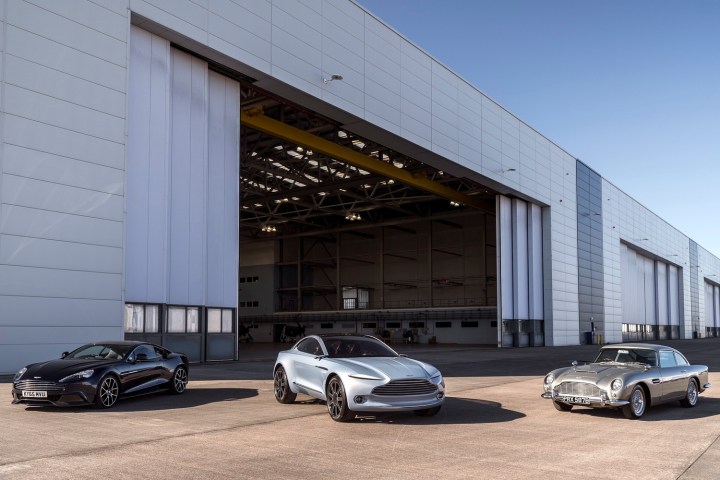
After looking into 20 global locations, Aston announced in February that the new factory would be located in St. Athan, Wales. Now that all of the relevant contracts have been signed, Aston is ready to begin construction at the site, which was previously a large Royal Air Force (RAF) base, and is currently managed by the U.K. Ministry of Defence.
Aston hopes to begin production of its SUV at the St. Athan facility in 2019. Over the summer, the company started a recruiting drive for 750 new employees to staff the factory, and some are already training at Aston’s existing factory in Gaydon, England. The automaker also awarded a contract for initial construction work to Welsh firm TRJ Contracting.
This work will include construction of the customer and staff reception areas, offices, and an employee restaurant. This comprises “Phase I” of the project, according to Aston. “Phase II” will involve repurposing three “Super Hangars” from the old RAF base to house the actual assembly line and related facilities.
The SUV that will be built in Wales is expected to be based on the DBX concept that first appeared at the 2015 Geneva Motor Show. While the concept had an electric powertrain, it’s possible Aston will offer a gasoline engine as well. Like other high-end automakers, Aston hopes to cash in on the current popularity of SUVs and significantly expand its sales volumes. The company previously said it expects 90 percent of SUV production at St. Athan to be exported, with most vehicles going to the U.S. and China.
Meanwhile, Aston plans to grow production at its existing Gaydon factory, which builds all of the automaker’s current sports cars. Aston hopes to be building 7,000 cars a year there by 2020. That will include a new electric version of the Rapide called the RapidE, which is set to start production in 2018.


